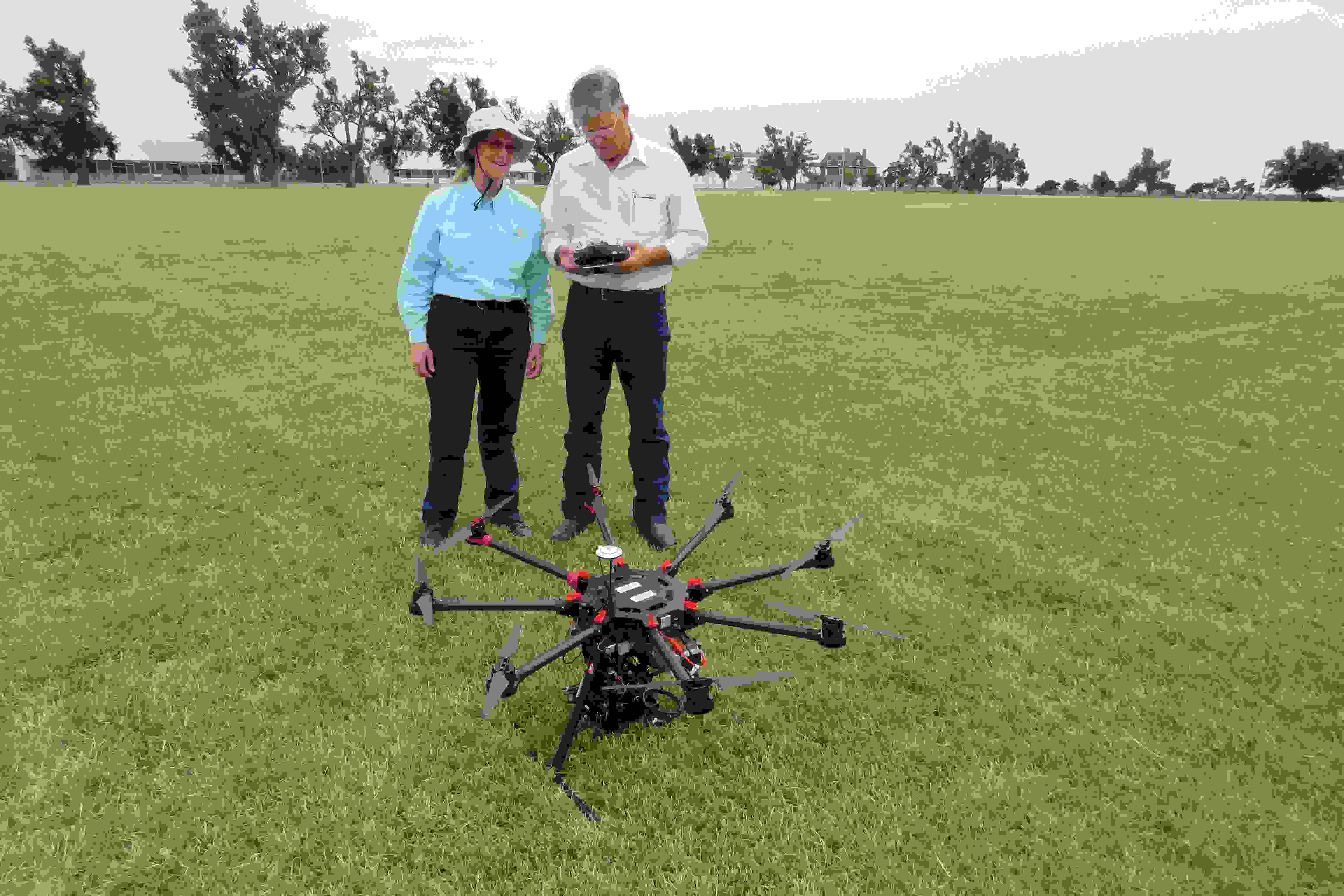Being a Texas A&M AgriLife Extension Service specialist is more than just providing information. The specialist has to deliver the information in a way that all audiences can understand.
Dr. Dana Porter, AgriLife Extension agricultural engineering specialist at the Texas A&M AgriLife Research and Extension Center at Lubbock, strives to take research and make it applicable to agricultural producers, industry professionals and policy makers.
Specializing in agricultural irrigation, Porter evaluates and promotes appropriate applications of advanced irrigation technologies that are water efficient.
Her interest in irrigation started at a young age. She grew up on a farm near Panhandle, Texas, and said she knew early that her passion was to help other farmers.
“Being able to contribute to sustainability of agriculture and the well-being of the rural communities, that is where my heart is,” Porter said.
Porter received her bachelor’s and master’s degree from Texas A&M University in agricultural engineering and her doctoral degree from Mississippi State University in agricultural and biological engineering.
Along with being an extension specialist, Porter is a professor and associate department head for Texas A&M’s Department of Biological and Agricultural Engineering.
Although she formerly had a teaching appointment, she now focuses on applied research and extension education.
“I really enjoyed being in the classroom, especially the upper level courses,” Porter said. “My appointment now is research and extension, so I do applied research and test out strategies for managing water efficiently.”
Porter said the work she does in the South Plains makes an impact in the agriculture community. The level of adoption of advanced irrigation technologies is very high because of the number of progressive producers there are.
Currently, Porter is working with other engineers to develop advanced irrigation controllers and irrigation scheduling tools for agricultural irrigation.
While she did not invent the irrigation technologies, her emphasis is on taking the technologies and capitalizing on the potential benefits.
“My piece of the work is helping the end users make good decisions on which irrigation technology to select, and then how to make the best use of them,” Porter said.
Taking the research information and adapting it for producers to understand is a crucial part of her job. She said she has to boil down the information so that the public can make informed decisions and know that their tax dollars are being spent for their benefit.
“Because I work with the researchers out in the field, I understand what they are doing, and I understand what works and what doesn’t,” Porter said. “I am just trying to help package and interpret that information so it will be useful to end users and the public.”
To get this information out, Porter said she conducts and participates in irrigation conferences and workshops. She said the information presented at the conferences and workshops allows producers to decide if they want to adopt the new technologies or learn more about them.
Other ways Porter gives the public information is through webinars, fact sheets and the use of mass media. She said engaging with mass media is an easy and efficient way to get information out quickly through the available agricultural trade journals.
Porter also does technology transfer for the Ogallala Water CAP and Ogallala Aquifer Program.
Porter said she really enjoys working with other engineers and researchers from other disciplines and seeing all of the research come together into practical solutions for agriculture and water management.
For more information on Porter and her research, visit her Ogallala Water staff page.

